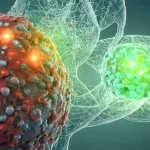Your Body Will Warn You Before A Heart Attack – Do You Know The Signals?
The post Your Body Will Warn You Before A Heart Attack – Do You Know The Signals? appeared first on Healthy Holistic Living.
Heart disease is a serious problem in the modern world. In the United States alone, 1 in every 4 deaths is related to heart disease, which means that 610,000 people die from it each year. About 735,000 Americans have a heart attack each year. 525,000 of these are first-time heart attacks, while 210,00 are repeat offenders. (1)
Unlike sudden cardiac arrest, a heart attack is usually something that builds over time. The term ‘heart attack’ is often used interchangeably with the term ‘cardiac arrest,’ though this is incorrect. Cardiac arrest is the more dramatic and sudden electrical malfunction of the heart that comes on without warning. A heart attack, on the other hand, is a circulation problem resulting from a blocked artery preventing oxygen-rich blood from reaching a section of the heart. Someone may die within a few minutes if they do not receive immediate treatment for cardiac arrest, where heart attack symptoms can gradually develop over days or weeks before a heart attack. A common cause of cardiac arrest is a heart attack.
Signs Of A Heart Attack
Cold Sweats and Dizziness: When poor blood circulation occurs, your brain cannot receive proper blood flow for proper functioning. This may be a sign that you are in danger of a heart attack or a sign of other serious health conditions.
Chest Pressure: Chest pressure, otherwise called angina is the most commonly known and noticeable signs of a heart attack. Some people mistake this for indigestion, but when the pressure becomes constant, it possibly means that your heart is not receiving enough oxygen-rich blood.
Feeling Weak: Feeling weak, nauseousness, and jaw pain can all be signs of a lack of blood flow throughout your body that may lead to a heart attack.
Flu-Like Symptoms: This can be confusing, but flu-like symptoms such as fever, fatigue and chest pain lasting for 2 to 10 days may be a sign of a heart attack. Visit your doctor to see if your symptoms are flu or heart-related.
Chronic Fatigue: Constant tiredness and sluggishness may cause loss of blood flow often due to a large buildup of plaque in your arteries. This can lead to a heart attack.
Shortness of Breath: Your lungs need plenty of blood supply. If they don’t receive enough blood they are unable to breathe enough air and cannot supply the brain with enough oxygen. This leads to shortness of breath that may signal the risk of a heart attack.
Insomnia: Insomnia can lead to elevated blood pressure that can eventually lead to a heart attack.
Stomach Pain: Abdominal pain, nausea and bloating may be early signs of a heart attack. Sometimes stomach pains can return for a short period before a heart attack occurs. (3)
Heart Attacks In Women
Women particularly are less likely to experience classic angina symptoms. Instead, most women tend to experience a burning sensation, a pain in their arms, neck, jaw, back, and throat, light-headedness, fatigue, and nausea. Women usually have a harder time knowing where the pain is coming from. (3, 4)
Risk Factors For Heart Issues
Risk factors of heart disease and a heart attack (4, 5, 6, 7):
Being overweight and/or obese
Poor diet
Physical inactivity
Excessive alcohol use
Smoking tobacco
High cholesterol
High blood pressure
Diabetes
Eating disorders
What To Do? Call 911!
Learn the warning signs of a heart attack. While these signals can be a sign of something else, be safe, visit your doctor and get it checked out!
Call 911! If you’re concerned that you’re experiencing heart attack symptoms, it is the fastest way to get the lifesaving treatment you or your loved one may need. The emergency medical services (EMS) staff can not only get you into the hospital quicker but can revive a heart that has stopped and give you necessary treatment before you arrive at the ER. (3)
How To Prevent A Heart Attack?
To do your absolute best to prevent a heart attack, make these necessary lifestyle changes (8, 9):
Choose good nutrition from whole foods filled with fiber, vitamins, minerals, and antioxidants. Plants like leafy greens, organic vegetables, fruits, nuts, seeds, legumes, and beans are your friends.
Stop smoking.
Stop drinking excessively or quit drinking alcohol altogether.
Be physically active. Exercise for 20 – 30 minutes or more at least 5 days a week and stay actively generally.
Lose weight if you need to. Aim to maintain a healthy weight and muscle to fat ratio.
Reduce stress and manage your anxiety. Meditate, do relaxation exercises, try yoga, journal, any activities that bring you joy. Keeping mental stress at bay will keep physical stress off your heart.
Manage your diabetes or pre-diabetes.
Lower your cholesterol and blood pressure through a healthy diet, exercise and stress reduction.
Remember, necessary lifestyle changes can lower your risk of heart disease and a heart attack. Knowing the risk factors and signals of a heart attack can save your life and the life of your loved ones. Don’t be afraid to call 911 if necessary! You could save your life or someone else’s.
The post Your Body Will Warn You Before A Heart Attack – Do You Know The Signals? appeared first on Healthy Holistic Living.










